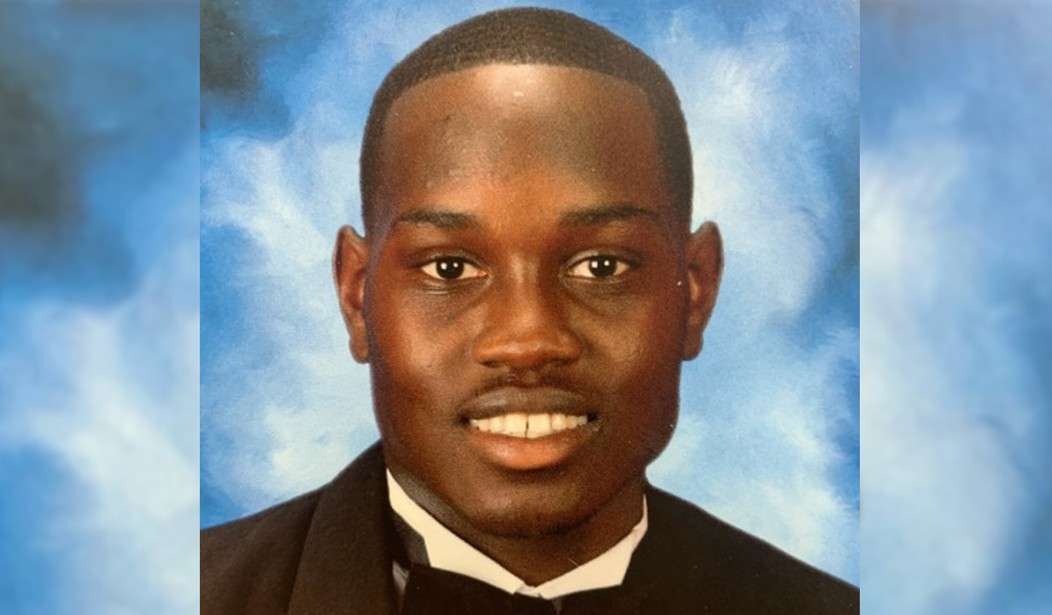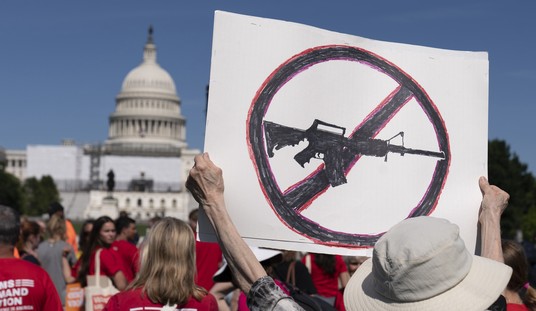While we’ve been focused more on the closing days of the Kyle Rittenhouse trial in Kenosha, Wisconsin this week, the trial of three Georgia men accused of the murder of Ahmaud Arbery in Georgia is also generating some headlines. On Monday, attorneys for Gregory McMichael, Travis McMichael, and William “Roddie” Bryan asked Judge Timothy Walmsley to declare a mistrial because jurors have been tainted by sounds of weeping from the court gallery and the presence of activists like Rev. Jesse Jackson and Al Sharpton.
Walmsley was not impressed by the argument, and in fact chided Bryan’s defense attorney for his complaints about Black activists in the courtroom.
Tensions flared in the courtroom Monday morning soon after Jackson sat in the back row of the courtroom between Arbery’s parents. Defense attorney Kevin Gough asked the judge to make the civil rights leader leave to avoid unfairly influencing the jury. Gough, an attorney for Bryan, also complained last week when the Rev. Al Sharpton joined Arbery’s mother, Wanda Cooper-Jones, and father, Marcus Arbery Sr., inside the Glynn County courtroom. Gough told the judge Thursday “we don’t want any more Black pastors coming in here.”
“There is no reason for these prominent icons in the civil rights movement to be here,” Gough said Monday. “With all due respect, I would suggest, whether intended or not, that inevitably a juror is going to be influenced by their presence in the courtroom.” Superior Court Judge Timothy Walmsley declined the request. Courtrooms are generally open to the public, although the judge has limited seating in the public gallery because of the coronavirus pandemic. “The court is not going to single out any particular individual or group of individuals as not being allowed into his courtroom as a member of the public,” Walmsley said. “If there is a disruption, you’re welcome to call that to my attention.” Jackson told reporters outside the courthouse that he came to coastal Brunswick to support justice for Arbery’s family, not in response to the attorney’s previous remarks about Black pastors. “As the judge said, it was my constitutional right to be there,” Jackson said. “It’s my moral obligation to be there.”
Jackson acknowledged that Arbery’s mother wept “very quietly” in the courtroom after prosecutors showed a photo of her son to a witness. Gough’s mistrial request was joined by the two other defense teams. Franklin Hogue, an attorney for Greg McMichael, said he fears the defendants aren’t receiving a fair trial in the community. Jason Sheffield, one of Travis McMichaels’ attorneys, said the weeping caused some jurors to look and see Jackson, an icon “whose autographed picture hung in my mother’s law office for decades.” “Several jurors did look over. Their faces changed, (showing) the emotion and sympathy they felt,” Sheffield told the judge. Walmsley warned the attorneys their own statements may have lured some high-profile figures to the courthouse.
“I will say that is directly in response, Mr. Gough, to statements you made, which I find reprehensible,” the judge said. Walmsley singled out a comment Gough made to back up his “Black pastors” remark last week: “If a bunch of folks came in here dressed like Colonel Sanders with white masks sitting in the back … ” before the judge cut him off.
Given the fact that prosecutors are alleging the McMichaels and Bryan pursued Arbery through their Satilla Shores neighborhood at least in part because of their own racial bias, I can understand why the defense attorneys are concerned about jurors being influenced by the sight of recognizable activists like Jackson and Sharpton. But the judge made the right decision here; you can’t deny someone access to the courtroom just because the defense attorneys don’t like it.
If I were representing the defendants here, I’d quit worrying about what’s going on in the gallery and focus more on the witnesses presented by the State. Of course, given how the prosecution’s case has unfolded, there may be good reason why defense attorneys are hoping for a mistrial. The McMichaels and Bryan claim that they were trying to enact a citizens arrest on Arbery, but none of the officers who spoke to the three men that day heard any of them mention a citizens arrest at the time. Prosecutors also say that even if that was their intent, they had no immediate knowledge that a crime had been committed, and weren’t conducting a lawful citizens arrest when they pursued Arbery, eventually shooting and killing the man as he apparently reached for Travis McMichael’s shotgun.
McMichaels says he shot to defend himself. The prosecution says he was already committing a felony offense and had no right of self-defense at the time. And ultimately it’s going to be the jury, not the spectators in the courtroom who are going to decide this case. Yes, this trial is a media circus. No, that’s not going to change. In fact, now that Gough has made such an issue of the activists in the courtroom, he can probably expect many more to show up in the days ahead. The defense doesn’t have to like it, but if the attorneys are still trying to clear their clients’ names they need to quit trying to clear the courtroom and focus on the evidence at hand.









Join the conversation as a VIP Member